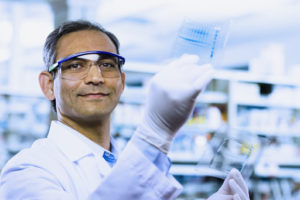
With genetically tailored treatments for cancer and other serious diseases becoming more mainstream, a look back through the DNA of multiple generations within a family will help future physicians better target healthcare plans for patients. However, once a loved one is cremated, or has been interred, their DNA is essentially lost forever. Wouldn’t it make sense to sample a loved one’s DNA at the funeral home, prior to cremation or burial?
Family owned and operated Rosedale Funeral Homes Ltd. (UK) engaged Lyco Works to conduct technical due diligence on a novel DNA preservation technique. “We’d like to offer it to our customers as a service, but we first need to confirm that it’s legitimate technology. This is a very conservative business.” Rosedale’s owners commented.
We set to work, reviewing data, beginning by interviewing the Canadian based inventors of the technology and their newly formed company DNA Memorial, and reviewing their data. We also interviewed a customer who had used DNA Memorial and then had analysis done on a relative’s DNA. We also interviewed the paternity testing lab who performed the genetic analysis on a sample preserved using the new technology, to hear their perspective on the condition of the stored DNA. We also did a dry run, preserving the DNA of a living person and their children.
Several methods for preserving DNA are known, including cryogenic storage – however the technique used by DNA Memorial is unique. It was developed by archeological genetics experts, who studied the rate of degradation of the DNA of ancient mummified human remains under various conditions. From Chilean tombs, to Antarctica, to Egyptian pyramids, DNA in 2,000 year old mummies was assessed for degradation. Their studies showed them that DNA is preserved better by warm dry conditions vs. cold. Using their data, the inventors found a new way to stabilize DNA — by coating it onto silica in an anhydrous inert atmosphere. DNA stored in this way is thought to have a lifetime well in excess of 100 years at room temperature.
The DNA sample can be taken in the form of a mouth swab or hair follicles from the deceased. The samples are sent to Canada for processing, and Rosedale’s customers receive a small sealed vial containing DNA in an amount sufficient for around 50 genetic tests.

Hi Jason,
Setting aside for a moment, the legal questions (including rights of the deceased) to extract and evaluate DNA samples, the concept sounds pretty distasteful to me. Thinking about it objectively and rationally, it seems sensible. I think it will be a tough sell for them, initially.
I would imagine that there are other applications for this technology that could be very useful, including criminal forensics (cold cases).
Interesting post, Jason.
Michael